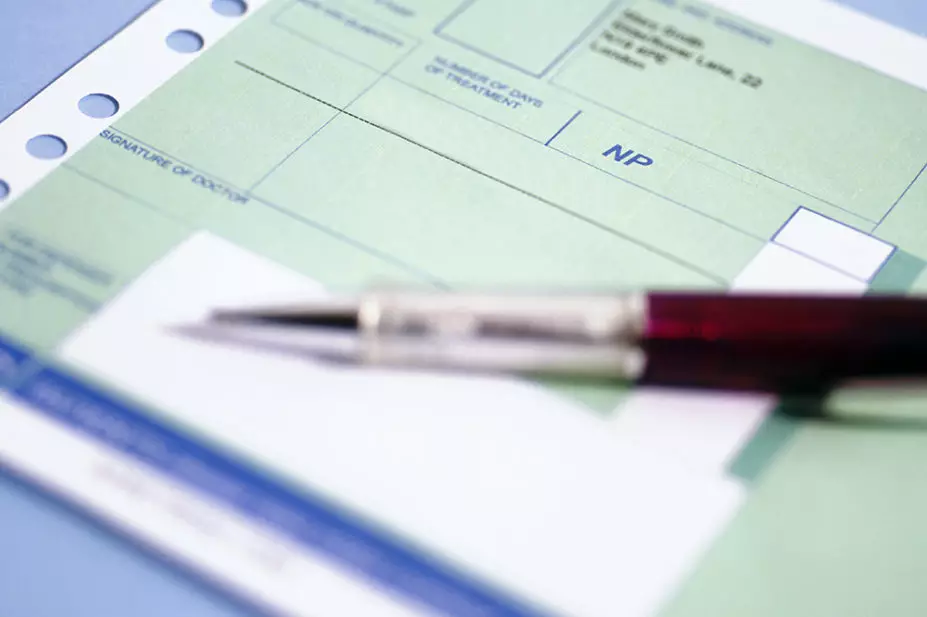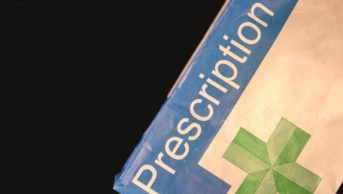
Shutterstock.com
People in England aged 60–65 years could be expected to pay for prescriptions, under a new proposal from the Department of Health and Social Care (DHSC).
Currently, patients aged over 60 years are exempt from prescription charges, but the DHSC has proposed raising this to align with the state pension age (SPA) of 66 years.
Under the government’s preferred plan, published on 1 July 2021, the raised qualifying age would be phased in by potentially allowing patients aged over 60 years at the time of the regulation change to continue to claim free prescriptions.
The DHSC has estimated that the proposals could generate “up to £300m more for the NHS by 2026 to 2027”.
In an impact assessment, published alongside the proposal, the government argued that “blanket exemptions for people aged 60 and over are no longer appropriate”, given that in 2019/2020 around 60% of people aged between 60 and 65 were “still economically active and potentially able to meet the cost of their prescriptions”.
“Changing the upper age exemption will raise significant extra revenue for the NHS, which found itself under unprecedented pressure in 2020,” the impact assessment said.
“Aligning the upper age exemption with the SPA would generate valuable additional revenue for the NHS, whilst the most vulnerable would be protected by medical and income-related exemptions.”
The DHSC said in a statement that the consultation does not “propose any other changes to existing exemptions from charges, which remain in place for a range of ages and vulnerable groups or those on low incomes”.
However, the impact assessment noted that people aged 60–65 years, who are not eligible for other exemptions, “could face an average annual cost of £50 to £100 depending on their medicine use and method of payment”, and that “the policy would affect some lower income groups more severely”.
The impact assessment estimated that 7% of those aged 60–65 years, who would no longer be covered by the exemption, “are likely to be deterred” from collecting a prescription owing to the prescription charge, “with on average an assumed 40% of prescriptions not being collected for these people”.
“Partially offsetting this small negative impact on health inequalities as a result of the deterrent effect, the increase in funding to the NHS could help to reduce health inequalities,” the impact assessment argued.
Thorrun Govind, chair of the Royal Pharmaceutical Society (RPS) English Pharmacy Board, said on Twitter that she was “genuinely stunned” by the proposals.
“The current system already doesn’t make sense. It goes completely against the principles of healthcare in this country to proceed down this route.”
In a statement, Govind added that the RPS was “deeply concerned that even more people will have to make choices about their health based on their ability to pay”.
It is “unacceptable to raise the cost of prescriptions in the current economic situation”, Govind said, adding that the proposals will “only further drive the health inequalities that have been highlighted by COVID-19”.
Patients with certain long-term conditions are exempt from prescription charges; however, the list of exempt long-term conditions has “barely changed since 1968 and fails to include many long-term conditions that are prevalent today”, Govind said.
“As a result, people of working age with long-term conditions are disproportionately affected by prescription charges”.
Under current rules, medical exemption certificates — entitling the holder to free prescriptions — are issued if you have a range of conditions, including cancer, a permanent fistula and diabetes mellitus.
The RPS is a member of the Prescription Charges Coalition, a group of more than 40 bodies calling for patients with certain long-term conditions, such as asthma and rheumatoid arthritis, to be exempted from prescription charges.
READ MORE: Prescription charges backfire on UK health and wealth

